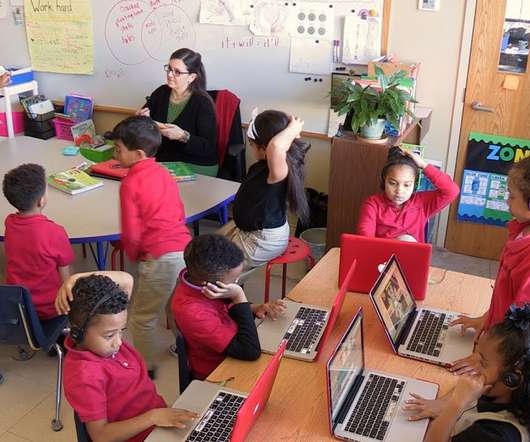Micro-credentials for teacher PD: Why? What? How?
Neo LMS
DECEMBER 12, 2017
But I digress… technology, specifically in the form of micro-credentials (sometimes called digital badging) has emerged not only as a powerful, accessible and appropriate way to learn online, but is also allows teachers to manage their time and resources better (keep in mind many teachers pay for PD out their own pocket).














Let's personalize your content